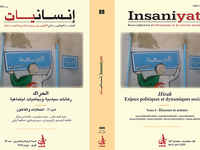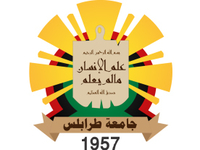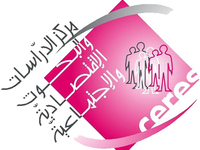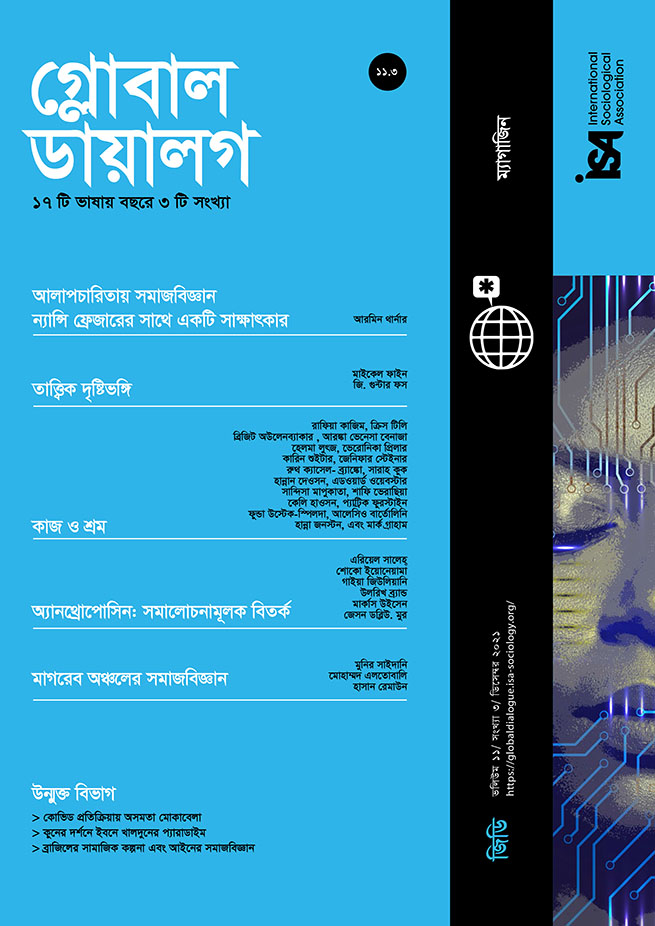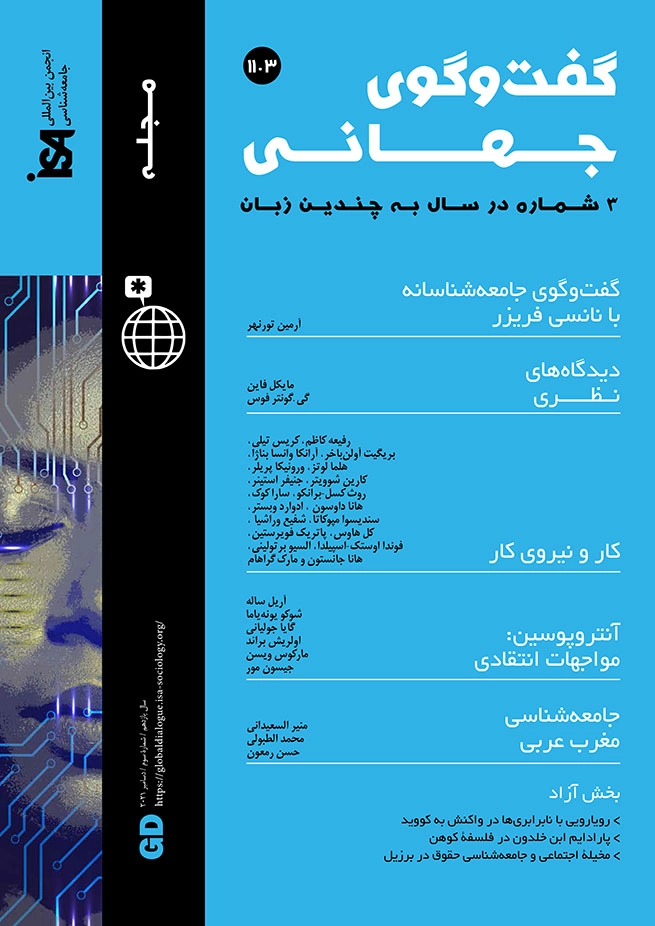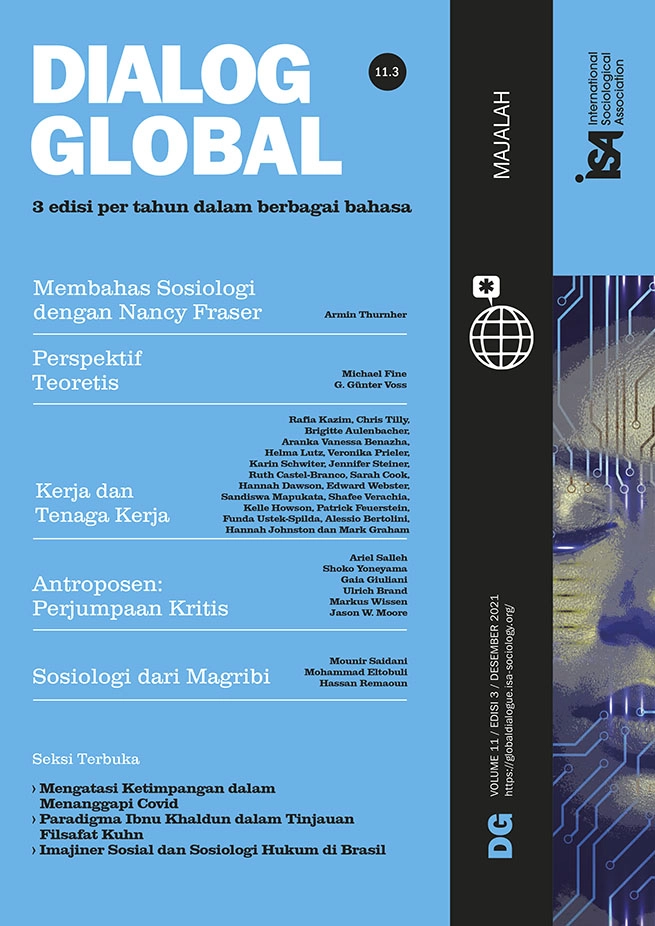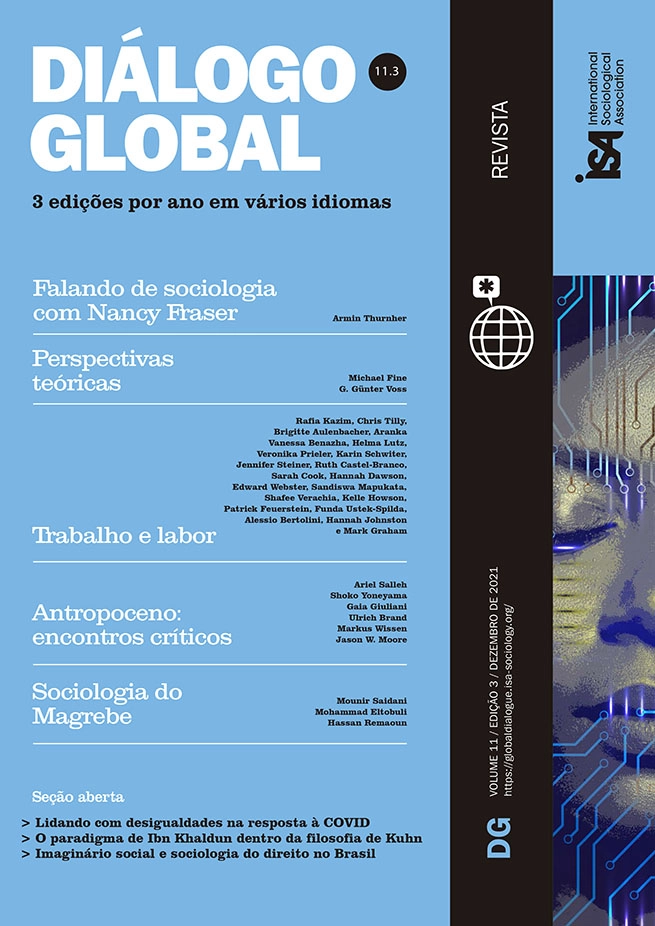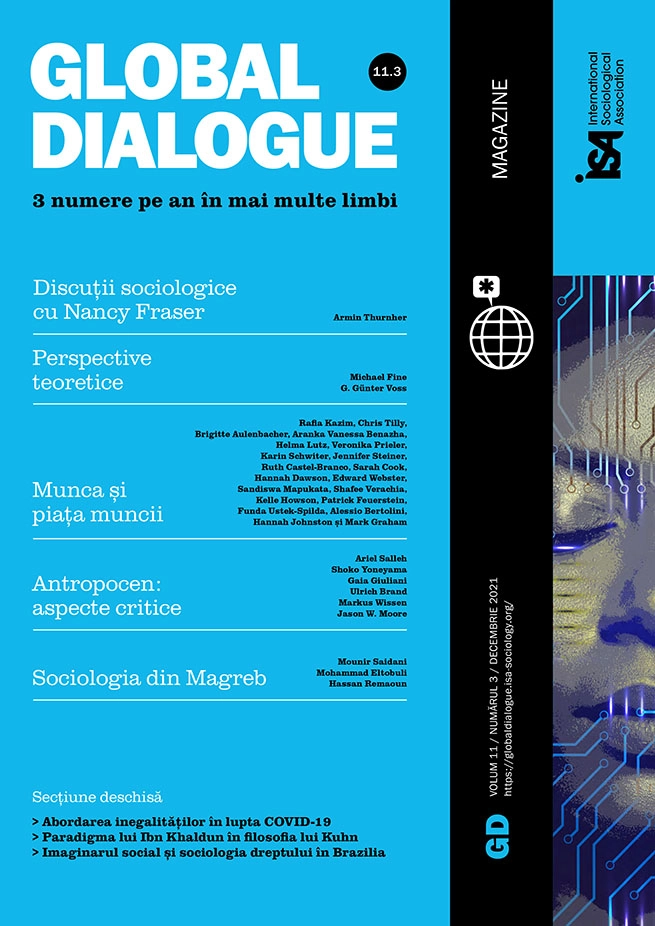How can the question of use and status of a discipline such as sociology in Algeria today be discussed as concisely as possible? To be brief, it seems to me that at least three aspects should be taken into consideration:
(1) The teaching of sociology and its evolution since its introduction at the Algerian University.
(2) Social demands and opportunities for the discipline.
(3) The status which it seems to have in the field of knowledge and the overall dynamics characterizing it in relation to other social disciplines.
The teaching of sociology
It was through the French academia, on which the University of Algiers depended until 1962, that the teaching and use of sociology - following the Durkheimian tradition - was introduced in Algeria. The discipline had to be grafted first of all onto the teaching of other degrees, such as philosophy, with the institutionalization of a certificate in morality and sociology. The sociology degree and the postgraduate doctorate date back to 1958, and in the same year the former Faculties of Letters were transformed into the Faculty of Letters and Humanities. Algeria, which gained its independence in July 1962, inherited this model. The University of Algiers was equipped in the following years with a sociology degree taught through four higher education certificates (“certificats d’enseignement supérieur,” or CES): general sociology, social psychology, political and social economy and, as an option, ethnography of North Africa or demography.
From the 1970s and 1980s onward, this teaching has evolved with the break-up of the CES into more targeted teaching modules and hourly volumes integrating both theoretical courses and supervised or practical work and tutorials, as well as field internships during the first years. Instruction is given for four years with a common core of two years and a period of specialization of the same duration which leads to the writing of a dissertation at the end of the cycle. In the meantime, the universities, which had been limited since 1958 to Algiers and its annexes of Oran and Constantine, have seen their number multiply to reach several dozens today. Depending on their means, these can open one or more specialties (sociology of work, urban sociology, rural sociology, cultural sociology, political sociology, etc.). The teaching, which was initially in two different languages of instruction (Arabic and French), was completely Arabized at the beginning of the 1980s. This was done even earlier, in the 1970s, for philosophy and history. It should also be noted that the Bachelor of Arts, Master, and doctorate (in French “Licence-Master-Doctorat”), namely the LMD system (as generalized in Europe), was adopted about ten years ago. Finally, I would like to point out that, apart from the Durkheimian and Weberian traditions, some generations of Algerian sociologists have been influenced in their theoretical approach by Ibn Khaldun and Marx, as well as by the work of Pierre Bourdieu and Jacques Berque (particularly on Algeria and the Maghreb).
Social demand and opportunities for the discipline
With the expansion of the university system throughout the country and the demographic surge that has had a strong impact on the educational system, thousands of sociologists enter the labor market every year. But not all of them work in jobs that are directly related to their educational profile. They are often found in a wide variety of occupations depending on the availability of jobs, mainly in the public service (administration, teaching, press, police, economic sector, etc.), but also in the private sector. In fact, students who end up in the sociology stream often do so only because they are oriented there by the admissions system, especially when they have baccalaureate degrees in the humanities acquired with marks close to the lowest average needed to pass.
However, there is demand – both public and private – for the work of sociologists. Public institutions, in particular, require expertise in statistical surveys such as population censuses (dating back to 1850), which need assessment and planning where they take place. Social welfare, forecasting and control of social movements, to mention but a few, are other issues of needed sociological expertise. Public authorities mainly favor empirical surveys. The sociologists’ approach to university teaching and scientific research is also appreciated. The latter is carried out through university theses, laboratory activities available at universities, and national research centers. Thus, the 1998-2002 Law on the orientation and five-year program of scientific research and technological development, which continues to establish priorities in the country, sets out 30 national research programs, ten of which directly or indirectly involve sociological know-how. The “Population and Society” program, which is entirely aimed at sociologists, anthropologists, and geographers, lists 118 themes, divided into 32 axes and 7 research areas: (1) City and urban space; (2) Rural space; (3) Family, women, and society; (4) Migration and spatial distribution of the population; (5) Work and employment; (6) Social mobility; (7) Knowledge, expression, and imagination.
Status and role
The national state that emerged in Algeria after the country’s independence inherited the university and scientific system bequeathed by colonization. Nevertheless, it criticized it, especially in the field of social sciences and humanities, which it considered to have served as a means of perpetuating and legitimizing the colonial order. This was particularly the case with regard to the racist assumptions informing disciplines such as historiography and ethnography, or even psychology and psychiatry, as practiced by the “School of Algiers,” which operated at the university where the colonial elites were trained. The young state had therefore to reformulate the field of knowledge according to its own objectives in order to re-found society, targeting first and foremost the reclaiming of a national identity that had long been violated, as well as the need to promote economic and social development.
The sciences of man and society, or who uses them, had therefore to respond to these two imperatives by restructuring themselves within the framework of two paradigms:
The first, for identity purposes, was dominated by historiography (or rather national history) and included disciplines such as philosophy, theology (Islamic sciences), Fiqh (Islamic jurisprudence), Arabic language studies, or even psychology linked to personality and education.
The second, supported by developmentalism, was framed by disciplines that could serve socioeconomic promotion and modernization, with the sociologist being called upon in the same way as the geographer or the linguist (translator), as well as the clinical or work psychologist and the specialist in positive law.
In this overall context, sociology, like all other cited disciplines, is torn in its implementation between its own epistemological imperatives and the permanent pressure of institutional and ideological constraints. From this viewpoint, negotiation and circumvention are permanent temptations and practices. It should also be noted that anthropology, which was relatively marginalized a few decades ago, is now being redeployed in university curricula, sometimes merging with sociology within the framework of socio-anthropology.
Hassan Remaoun, retired professor, University of Oran 2 and Associate Director of Research at the Centre of Research in Social and Cultural Anthropology (CRASC), Oran, Algeria <hassan.remaoun@gmail.com>
